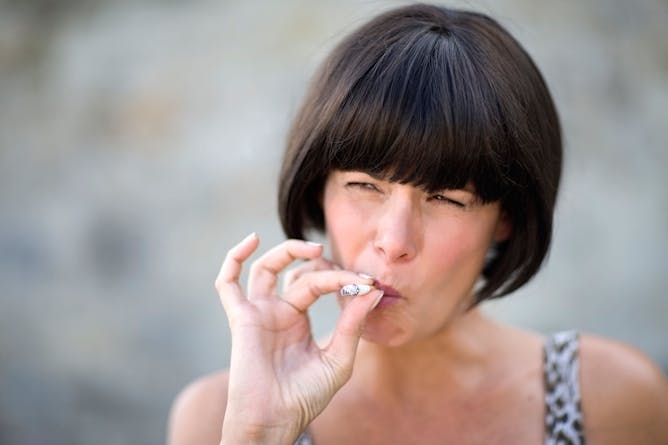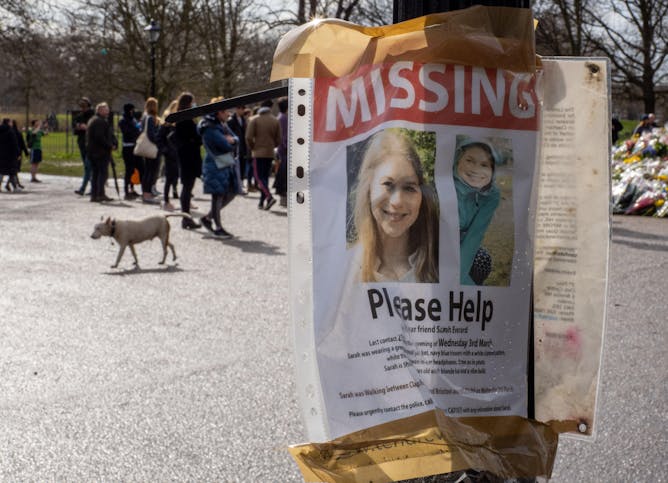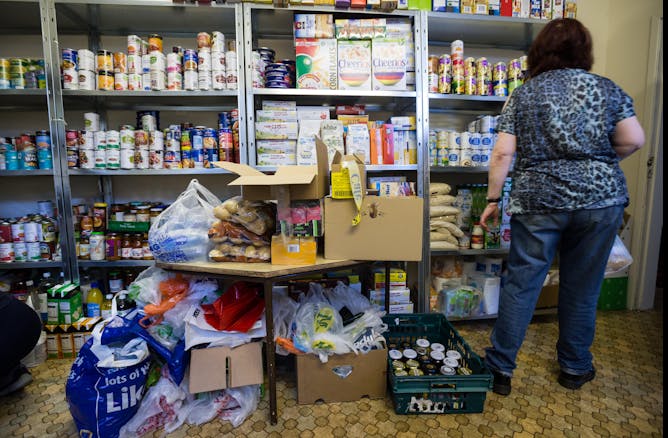|
|
|
|
Given that smoking famously causes lung disease, it came as a surprise in early 2020 when several studies suggested that smokers were underrepresented among patients with COVID-19. Smokers seemed to be protected from a disease that ravages the lungs. This apparent phenomenon became known as the “smokers’ paradox”.
We now know this is wrong. Indeed, smokers are 60%-80% more likely to be admitted to hospital with COVID, according to a recent study. But how did we come to believe in the extraordinary claim of the “smokers’ paradox” in the first place? Mark Shrime explains what went wrong with our thinking.
In the wake of the sentencing of the man who killed Sarah Everard, the UK government has introduced a strategy. The problem is it places the burden on women and girls to keep themselves safe, rather than addressing the causes of their lack of safety. And as the Conservative Party Conference discusses the country’s next steps, we also take a look at what the £20-a-week cut to universal credit will mean for hundreds of thousands of households. Watch out for our coverage of the conference later today.
|

|
Clint Witchalls
Health + Medicine Editor (UK edition)
|
|

No, it won’t protect you from COVID.
Cultura RM/Alamy Stock Photo
Mark Shrime, RCSI University of Medicine and Health Sciences
How the ‘smoker’s paradox’ went up in a puff of smoke.
|

Peter Dench / Alamy Stock Photo
Tanya Beetham, Teesside University; Emma Turley, CQUniversity Australia; Lisa Lazard, The Open University; Lois Catrin Donnelly, University of Worcester; Lucy Thompson, Michigan State University
The government’s violence against women strategy fails to adequately address the reasons for women’s lack of safety.
|

Mark Harvey / Alamy Stock Photo
Donald Hirsch, Loughborough University
The end of the temporary uplift means many household budgets will no longer meet the minimum income standard.
|
Business + Economy
|
-
Ronen Palan, City, University of London
The latest instalment of leaks about the super-rich using offshore tax havens to hide their wealth has been published.
|
|
Environment + Energy
|
-
Li Li, Xi'an Jiaotong Liverpool University
The electric Pokemon’s real-life muse is charged with degrading the vast meadows of the Tibetan Plateau.
|
|
Science + Technology
|
-
Rox Middleton, University of Bristol
True blue colour pigments are not very common in nature, so plants and animals perform tricks with the light to generate their shimmering blues.
-
David Rothery, The Open University
What did Mercury look like as BepiColombo swung by?
|
|
Health + Medicine
|
-
Ann Z. Bauer, University of Massachusetts Lowell
Tylenol has long been considered a go-to medication for low to moderate pain and for fever reduction, even during pregnancy. But mounting evidence suggests that it is unsafe for fetal development.
-
Edmund S. Higgins, Medical University of South Carolina
On Oct. 1, 1971, Godfrey Hounsfield’s invention took its first pictures of a human brain, using X-rays and an ingenious algorithm to identify a woman’s tumor from outside of her skull.
|
|
Politics + Society
|
-
Luc Muyldermans, University of Nottingham; Bart MacCarthy, University of Nottingham
The long queues and forecourt closures have been blamed on lorry driver shortages and panic buying. But is that the whole story?
-
Sophia Negus, Sheffield Hallam University
Being on universal credit affects people in more ways than just financial.
-
Christian Lange, Utrecht University
The Taliban’s punishments are at odds with many basic principles of Islamic law.
|
|
| |
Featured events
|

|
— The University of Manchester, Oxford Road, Manchester, Manchester, M139PL, United Kingdom of Great Britain and Northern Ireland — University of Manchester
|

|
— Online - Academia Europaea Cardiff Knowledge Hub, Cardiff University, Cardiff, Cardiff [Caerdydd GB-CRD], CF24 4HQ, United Kingdom of Great Britain and Northern Ireland — Cardiff University
|

|
— Online, University of Southampton, Southampton, Southampton, SO17 1BJ, United Kingdom of Great Britain and Northern Ireland — University of Southampton
|

|
— Online, Oxford, Oxfordshire, N/A, United Kingdom of Great Britain and Northern Ireland — University of Oxford
|
|
|
|
| |
| |
| |
| |
| |
|
|
|
|
|
|
|